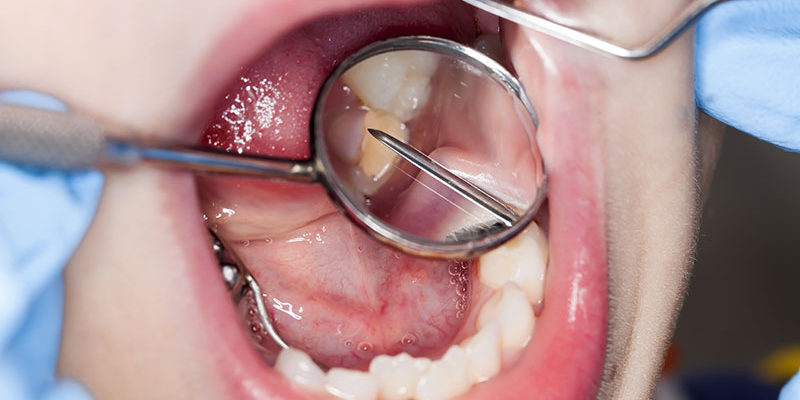If you recently came in for a dental appointment and were told that you have dental caries, you may be unsure of what this means and how they got there. Dental caries are cavities that form in your mouth and unfortunately, most people will experience them at some point in time. While cavities can be avoided, it is not always possible, especially if you are more prone to them.
Cavities start out as small pinholes in your teeth and they are caused by decay that is allowed to remain. Cavities will then form into larger holes and completely destroy the root and tooth itself when not handled in a timely manner.
How Exactly Do Cavities Form?
 There are two main ways that a cavity can and will form in your mouth and fortunately, both of these ways are able to be prevented with time and good oral hygiene. The first way a cavity can form is through bacteria that lives in the mouth and the second way is by eating a diet that is rich in sugar and starch.
There are two main ways that a cavity can and will form in your mouth and fortunately, both of these ways are able to be prevented with time and good oral hygiene. The first way a cavity can form is through bacteria that lives in the mouth and the second way is by eating a diet that is rich in sugar and starch.
There is a large number of bacteria in your mouth and when the sugar or starch sticks to the bacteria, plaque forms. Plaque is sticky and it attaches to your teeth, which ultimately leads to holes in your teeth.
There are areas within your mouth where plaque is able to build up and can form. These areas include spaces between your teeth and other hard to reach areas such as behind your molars and at the gum line.
When a cavity does form in your mouth, it starts to form on the enamel, which is considered the first layer of your tooth. As the cavity gets worse, it will then move into the other layers such as the dentin. The cavity will not reach the dentin right away and only happens when the cavity is allowed to progress without care.
Signs That a Cavity Exists in Your Mouth
There are a number of symptoms and signs that will appear and develop as a cavity forms or continues to decay. If you have any of these symptoms, it is important that you call C S Family Dental and schedule a consultation with Dr. Sohn.
Some of the signs and symptoms to look out for include:
- Brown, black, or white stains on the outside of the enamel
- Tooth sensitivity, especially to cold and hot items
- Holes in the tooth
- Sharp pain
- Toothaches, either severe or mild
- Pain when you bite down
Risk Factors for Cavities
There are some risk factors that can increase your odds of developing a cavity. People with increased odds will often find themselves at a higher risk of developing a cavity than someone else. Sometimes, Dr. Sohn is able to make adjustments to your teeth to ensure that cavities do not form on a regular basis.
Some of the risk factors for cavities include:
- Too little fluoride
- Foods that are high in starch and sugar
- Dry mouth
- Constant snacking and drinking
- Improper dental hygiene and poor oral care
- Heartburn or indigestion
- Location of the tooth
- Seniors and infants
- Night time snacking and drinking
Schedule an Appointment with C S Family Dental Now!
Dr. Sohn is ready to look over your teeth and monitor your dental health. Whether or not you think you have cavities a dental exam is needed to maintain the health of your teeth. Contact C S Family Dental today to schedule an appointment with us.


